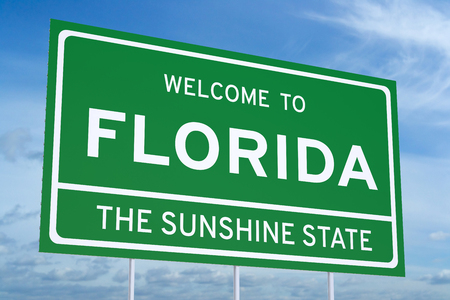Visitors’ Information About Florida’s Move Over Laws and Yielding to Others
February 15, 2024 | Category: Automobile Accidents, Motorcycle Accidents, Personal Injury, Truck Accidents | ShareFox4Now reported in September that more people visited the Sunshine State in the first six months of 2023 than ever before. This equates to 70 million tourists. Of these 70 million, many of them drove vehicles at some time during their stay.
When one enters the state of Florida, many vehicle laws are different from what drivers are familiar with. It is important that out-of-state, or out-of-country, visitors know Florida’s driving laws, particularly Florida’s “Move Over Law” Florida State Statute 316.126, and when to yield to other drivers.
History of Florida’s “Move Over Law”
Florida’s “Move Over Law” was enacted in 2002 to curb accidents caused by motorists when they injured or tragically killed enforcement officers, first responders, and other emergency officials during stops on Florida’s highways and roads. Since 2002, there have been changes. Most recently, Florida’s “Move Over Law” expanded to include disabled vehicles.
 Before January 1, 2024, Florida required motorists to move over one lane, if it is safe to do so, when there are stopped law enforcement and emergency responders, sanitation and utility service vehicles, tow trucks or wreckers, and maintenance or construction vehicles with displayed warning lights.
Before January 1, 2024, Florida required motorists to move over one lane, if it is safe to do so, when there are stopped law enforcement and emergency responders, sanitation and utility service vehicles, tow trucks or wreckers, and maintenance or construction vehicles with displayed warning lights.
On January 1, 2024, drivers will also be required to move over to avoid anyone stopped on the side of the road, specifically:
- Disabled motor vehicles that are stopped and displaying warning lights or hazard lights.
- Vehicles that are stopped and using emergency flares or posting emergency signage.
- Vehicles that are stopped and one or more people are visibly present.
When vehicles cannot safely move over, they are required to slow down to a speed that is 20 mph less than the posted speed limit (or to 5 mph if the speed limit is 20 mph or less). Should they fail to do so, they risk a fine, fees, and points on their driving records.
Florida Laws Related to Yielding to Other Vehicles
In addition to Florida’s “Move Over Law,” the Florida Department of Motor Vehicles’ Drivers’ License Handbook cites specific requirements for yielding to other vehicles, specifically for:
Emergency Vehicles – Motorists, bicyclists, and pedestrians must yield the right-of-way to law enforcement vehicles, fire engines, and other emergency vehicles using sirens or flashing lights. Pull over to the closest edge of the roadway immediately and stop until the emergency vehicle has passed. Do not block intersections.
Funeral Processions – Motorists, bicyclists, and pedestrians must yield the right-of-way to funeral processions. When the funeral lead vehicle enters the intersection, the remaining vehicles in the funeral procession may follow through the intersection regardless of any traffic control devices. All vehicles in the procession should have their headlights on (and may also use flashing hazard lights) as a signal to other drivers not to drive between or interfere with the funeral procession.
Public Transit – All drivers are to yield the right-of-way to public transit buses traveling in the same direction that have signaled and are reentering the traffic flow from a specifically designated pullout bay.
Fort Myers Accident Attorneys and Personal Injury Lawyers Fight for the Rights of Florida Accident Victims
Spivey Law Firm, Personal Injury Attorneys, P.A. represents those injured because of the negligence of others. All of the firm’s clients have unique personal injury cases. The firm provides personal contact and communication along with aggressive representation in Fort Myers, Cape Coral, Port Charlotte, Naples, and all of Florida.
“Should you or a loved one be injured, please contact Spivey Law 24/7 at 239.337.7483, toll-free at 1.888.477.4839, or online at SpiveyLaw.com. There are no costs or attorney fees until we receive a monetary recovery for you. You and your family may concentrate on recovering rather than monthly bills or upfront costs,” said Attorney Randall Spivey.

